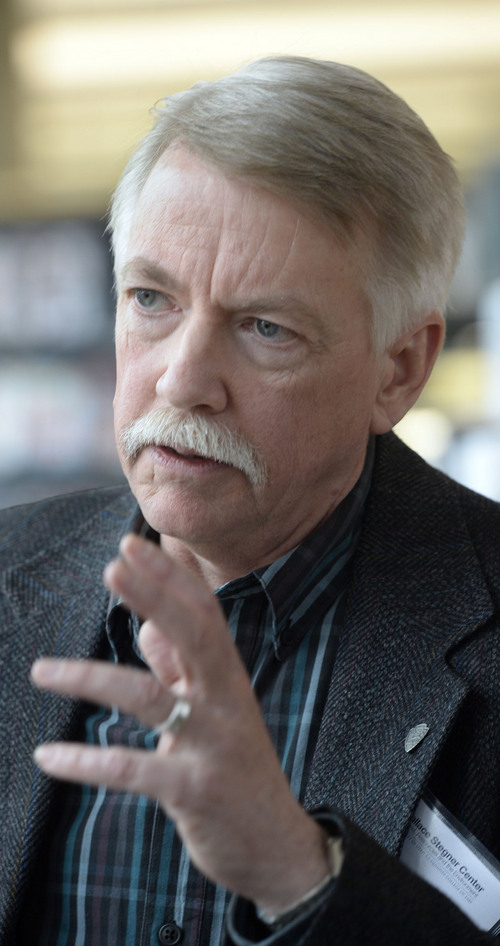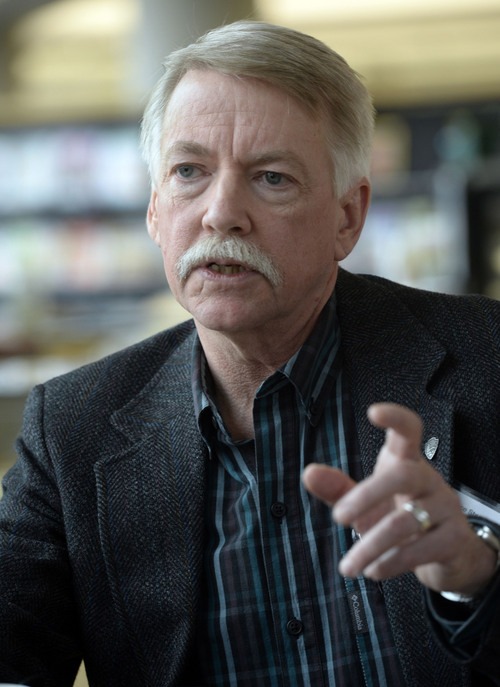This is an archived article that was published on sltrib.com in 2014, and information in the article may be outdated. It is provided only for personal research purposes and may not be reprinted.
Efforts by Utah Rep. Rob Bishop to undermine the 1906 Antiquities Act and by the Utah Legislature to take control of federal lands in the state are "symptoms" of a larger national issue, says Jonathan Jarvis, director of the National Park Service.
"What I sense with the flattening of visitation, the budget issues and the legislative attacks is that they are symptoms of the waning relevancy of the [National Park Service] to the American people," said Jarvis, in Salt Lake City to be the keynote speaker at the Wallace Stegner Center symposium.
"It's a lack of understanding what the National Park Service provides to society," he said. "It is more broad than the economic impacts. It is about quality of life; secret and incredible places that can be life-changing."
The National Park Service (NPS) is celebrating its 100th anniversary in 2016. Jarvis said the centennial provides a perfect opportunity to address the apathy.
NPS officials plan to connect with more people and strengthen existing relationships before and beyond the anniversary.
"We are looking at the millennials; that 18 to 35 age group," Jarvis said. "It appears they have a feeling of disconnect for a variety of reasons. We are working to understand how they see the world."
Jarvis is hoping the outreach will turn not just into visits, but also support on all levels for the parks.
"A lifetime of visitation, volunteerism, advocacy and philanthropy. We hope for a lifetime relationship," Jarvis said.
Jarvis commented on other NPS issues.
• On the long-proposed possibility of a Greater Canyonlands National Monument:
"When you stand at Island in the Sky and look across Canyonlands there are concerns about threats to that viewshed and ultimately to the watershed and other resources," he said. "That has been a concern from Day 1. How do we protect those things? That is pretty important to the park service. I'm not sure where it will wind up."
• On Bishop's efforts to change the Antiquities Act, restricting the president's unilateral power to protect large swaths of public land without congressional approval:
"Any change to Antiquities Act is shortsighted," Jarvis said.
Bishop argues mandating an environmental review is necessary to allow public input. The House passed the bill Wednesday but passage is less likely in the Democrat-controlled Senate.
The original act was passed with good intentions, but it's recently been used as a "political weapon, a gotcha effort, a power play," done to appease presidential supporters, Bishop says.
Jarvis points out the act "has been used by both Democratic and Republican presidents since its inception. We have used it with this president to expand the national park system to represent contributions of minorities.
"We feel the American story is our responsibility to tell and, frankly, the Antiquities Act is a perfect vehicle to do that kind of site protection."
Twitter: @BrettPrettyman







